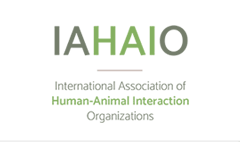Abstract
Despite dogs’ and pigs’ shared similarities, previous research indicates people favor dogs over pigs (known as “pet speciesism”). While pet speciesism has been empirically sup-ported, little is known about its predictors. This gap in the literature is problematic as urgent requirements to decrease meat consumption emphasize the pressing need to develop interventions to reduce pet speciesism and thus reduce meat consumption. However, to develop these interventions, we must first identify why people view pigs (vs. dogs) negatively. To begin addressing this gap, the current study utilized the stereotype content model to uniquely explore pet speciesism’s predictors. We recruited participants via social media, posters, flyers, and the university’s Sona system, resulting in a total of 232 participants (all 18+; Mage = 28.57, SDage = 10.74; 61.2% meat consumers; 78.4% female; 45.3% British). Behavioral and subjective self- relevance, familiarity, similarity and pet status of an animal, alongside overall empathy toward animals, differentially predicted dogs’ and pigs’ perceived warmth and competence and may usefully explain pet speciesism. These predictors should be investigated causally in experiments. Both the current study and later experiments could explain why people exhibit prejudice in favor of dogs and against pigs, with unique theoretical implications for pet speciesism literature and practical implications for meat consumption, policies, and public perceptions of pigs.
Recommended Citation
Gradidge, Sarah; Zawisza, Magdalena; Harvey, Annelie J.; and McDermott, Daragh T.
(2022)
"Farmyard Animal or Best Friend? Exploring Predictors of Dog vs. Pig Pet Speciesism,"
People and Animals: The International Journal of Research and Practice: Vol. 5
:
Iss.
1,
Article 11.
Available at:
https://docs.lib.purdue.edu/paij/vol5/iss1/11


